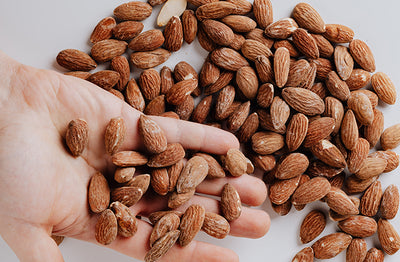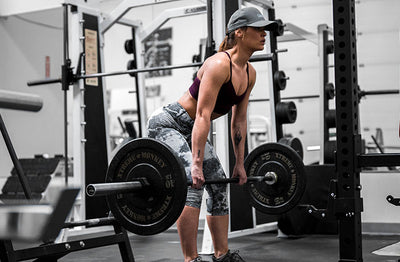It seems like just about every supplement you pick up these days has “added amino acids” written on it, but there are lots of different ones, and they all do different things, so how can you know which ones you should be taking?
Don’t worry, we’re here to help you understand which ones you want, and why you might want them!
What are Amino Acids?
Amino Acids are pretty important organic molecules that your body can use on their own, or combine to form proteins. If you took all the water out of your body, what is left would be 75% protein. You would also look like an Egyptian Mummy that’s been left out in the desert for a few centuries, but that’s beside the point.
Most of what makes up your body (once you exclude the water) is protein, and protein is made up of amino acids, so you can already see how they might be important to you.
There are around 500 known amino acids. Of those, your body uses 21 of them to live. Those 21 are split into “Essential” and “Non-Essential” Amino Acids.
What are Essential Amino Acids?
Essential amino acids are aminos that your body needs, but can’t make for itself, so you have to get them in your food. There are nine essential amino acids, Histidine, Lysine, Methionine, Phenylalanine, Threonine, Tryptophan, as well as the Branched Chain Amino Acids (BCAAs) Valine, Leucine and Isoleucine.
You’ll see BCAAs in lots of supplements because they can be used so quickly. Most amino acids need to be broken down before they can be used, but BCAAs can bypass your liver and kidneys and go straight to where they’re needed in your muscles!
What are Non-Essential Amino Acids?
Non-Essential amino acids are aminos that your body can produce naturally when needed, but you’ll still see a few of them in supplements. It’s not vital that you get them in your diet, but adding them in can have some great benefits, especially if you’re trying to get fit.
The non-essential amino acids are: Alanine, Arginine, Asparagine, Aspartic acid, Cysteine, Glutamic acid, Glutamine, Glycine, Proline, Selenocysteine, Serine and Tyrosine.
What can they do for me?
Amino acids are involved in pretty much every process of your body. From repairing muscles and making hormones that affect your mood to keeping your immune and digestive systems healthy.
Each amino acid has a role in your body, adding more of them can have a whole range of benefits besides just keeping your body running normally, while getting extra of some of them can have fantastic bonuses.
Should I be taking them?
You can’t store amino acids unlike fats and sugars. They will deteriorate quickly, so you have to constantly keep getting amino acids in your body to keep healthy.
If you aren’t getting enough of the amino acids in your food, your body will free some up by breaking down some of your muscle tissue. Of course, this means you’re losing muscle, which is not what you want.
You’ll get most of the amino acids you need from food, but you’ll burn through some of them really quickly when you’re active, so making sure you’ve got enough is vital for building muscle.
Think of your amino acids like money. Normally, your pay goes in, you spend a bit each day until the next payday. Heavy exercise is like going on a spending spree of amino acids, you run really low and need to dip into your savings. Topping them up is like getting that wealthy relative to give you some cash, just because you’re awesome, and they don’t want you eating 2 minute noodles for the next week.
Where can I find them normally?
Anything with protein in it will have amino acids. Usually you’ll get your aminos through meat, dairy, eggs, soy and nuts. A
vegetarian or vegan diet will have a bit more trouble getting protein, but it’s definitely not impossible.
Which supplements have Amino Acids in them?
Amino acids can be found in loads of different supplements, here’s some examples:
Pre-workout Supplements
Pre-workout supplements are designed to boost your mental energy, and prep your muscles for exercise. They might have some non-essential amino acids in them to do this, like Arginine, Aspartic Acid, Alanine or Tyrosine. Alanine is almost always in the form Beta-Alanine.
Intra-workout supplements
The amino acids you’ll see here are usually the Branched Chain Amino Acids (BCAAs) Leucine, Isoleucine and Valine. They generally come in a ratio of 2:1:1, but some
BCAA supplements can have extra amounts of Leucine, as it’s really important for repairing and building muscles.
Post-workout Supplements
By far the most common
post-workout supplement will be protein. Because protein is made up of amino acids, pretty much all of the amino acids your body needs can be found in a
protein supplement.
You use up a whole lot of amino acids when you exercise, so your body will break down muscle to get some if it runs out. Topping them up means you don’t have to, and you can keep building and repairing that lean muscle that you worked so hard for.
When should I take them?
Generally you take amino acids on an empty stomach, so your body can absorb them quickly and they’re not competing with the amino acids in your food.
What are the side effects?
Because amino acids aren’t stored, any extra is just flushed out of your system. As long as you’ve got enough water in your system to keep this flowing along, there’s not much that can really hurt you, as long as you’re not going crazy with them.
What can I stack them with?
The different supplements will stack with other supplements differently, so it’s best to look at the particular supplement you're taking to see what it would combine well with.
Are they safe for women too?
Amino acids are very safe for women. They can help you build muscle, but they won’t pump you up into a manly physique, they’ll just add to your ability to put on nice lean muscle, as well as heal and repair.
Conclusion:
Amino acids are used in thousands of ways in your body, but if you’re trying to get healthy, making sure you have enough in your system is massively important, unless you want your body to start eating itself!
Top up your levels and start building the muscle you want!
Read More:















